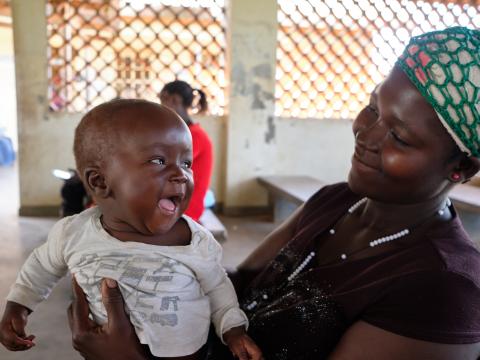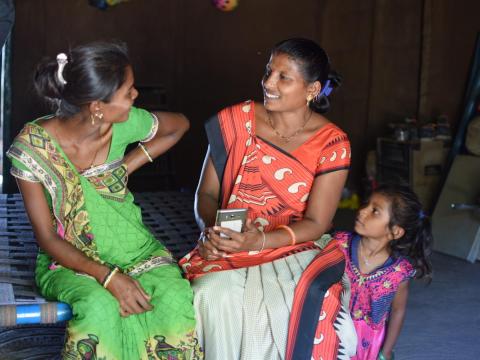2020 Digital Health Factsheet: Uganda
Download
World Vision Uganda’s experience shines in their three digital health projects:
In 2020, achievements for the AIM Health Plus project were significant with 480 village health teams (VHTs) using the CommCare application to deliver Timed and Target Counselling (TTC) messages and have received effective support and mentorship to ensure its continued use. Provision of solar kits has helped eliminate additional barriers to effective use of this tool. This has translated into time saved on the data collection process and improved satisfaction with services ratings from mothers. Integration and harmonization of data with DHIS2 (the platform that serves as the Ugandan health management information system) is allowing near real-time access to valuable community health data.
The AIM Health Plus project is supported by Irish Aid.
***
The Buikwe Maternal Newborn and Child Health Project (B-MNCH) works to improve maternal, newborn and child health (MNCH) in Uganda’s Buikwe district by 2021. To achieve this, it is improving and integrating household access and utilisation of MNCH services at both the community and facility levels. B-MNCH uses behaviour change communication, capacity building, empowerment of local health committees and social accountability to encourage and facilitate change among boys and girls ages 0–5 and men and women ages 15–49. District-wide use of CommCare by community health workers (CHWs) helps them to effectively follow up and deliver counselling messages to households with pregnant and lactating mothers. Data utilisation is increased even further by health facilities using both CommCare and DHIS2.
The B-MNCH project is supported by World Vision Hong Kong.
***
By increasing the use of curative and preventive interventions, The Pfizer Foundation-funded project in Uganda's Bugiri district aims to reduce mortality among children under 5 from common childhood illnesses. Trained VHTs address care-seeking behaviours of local child caretakers to increase demand for community health services. VHTs also influence social norms through faith and community leaders and by employing a socially-accountable community engagement strategy. With the project’s focus on supportive supervision and on-site video distance learning, VHTs and health workers gain skills to reinforce the child healthcare systems with service-quality enhancements. Additionally, they improve the healthcare and supply chain management systems by using the mobile application CommCare to implement, track, and store information about their treatment outreach and supplies. This data supports and informs healthcare decision-making at all levels by integrating with the government’s existing District Health Information System (DHIS2).
The project in Bugiri is supported by The Pfizer Foundation.
